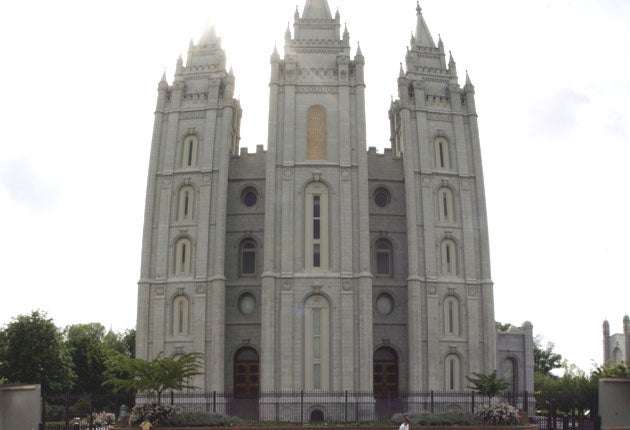Chasing the dead: genealogy and the art of recruitment

Ask most lay people what they know about the Mormon Church, or the Church of Jesus Christ of the Latter Day Saints to give them their official title, and the chances are the first subject they will mention is polygamy, despite the practice of taking more than one wife being officially renounced around 120 years ago.
They might also mention the odd famous Mormon, like The Osmond family, or The Killers, whose image seems to belie a religion that forbids alcohol and caffeine. Then there’s Mitt Romney, failed challenger to Senator John McCain for the Republican presidential nomination in 2008, and whose Mormon faith was believed to have hampered his cause.
The occasional celebrity aside, it’s staggering to think how little we know about what is the fastest growing church on the planet, with a global membership of more than ten million followers. The church itself does little to dispel the air of secrecy that surrounds it, quietly going about its professed business of saving souls.
What few people know is that the Latter-Day Saints aren’t only interested in the living - they also seek to recruit the dead. Even fewer know that this belief, a church doctrine no less, has fuelled the present genealogical boom, which has seen unprecedented numbers of us casting back through time in search of our family roots.
The Mormons are morally obligated to track down as many of their ancestors as possible and convert them to their faith vicariously in a temple ceremony, a ritual they know as proxy baptism but is also known as Baptising the Dead.
To help their members in their ancestral quests, the church has spent millions of dollars sending teams of men and women across the world to access as many records as possible, from behind the veil of communist China to the remote islands of the Pacific, as well as being granted access to the archives of other churches and faiths. Never in the history of organized religion has a doctrinal belief produced such an ambitious, elaborate and expensive undertaking
The result of this mass pursuit is the closest we will get to a catalogue of the dead; billions of birth, death, marriage, baptism and burial records, stretching back hundreds of years, making it the most exhaustive and complete archive extant. Its official name is the International Genealogical Index and the good news for genealogists is that it’s all available online, regardless of one’s faith, and it’s all free. Millions of us are able to go to www.familysearch.org, type in a name and kickstart our search, or help locate that elusive missing ancestor.
Seeing the success of the IGI, rival websites have sprung up, seeking to challenge its superiority, but few of them are free at the point of use, and few of them have the same worldwide reach. However, their presence means that an unprecedented amount of records and indexes are available at the click of a button. Never has it been so easy to find out so much about our ancestry from the comfort of our home, and for that we have to thank the Mormons and their belief in claiming the dead.
The practice is not without controversy. Most of us are happy to make use of the genealogical resources provided by the LDS church while being unaware about their real purpose. Yet when people of other faiths are made aware that these records may be used to convert their ancestors to Mormonism by proxy baptism, the response is different. The religious right in the US are hardly President Obama’s natural supporters, but when it was revealed last year that his deceased mother had been converted by proxy baptism, they rose in anger, seizing the chance to denounce an organization they see as no better than a cult.
Closer to home, two Irish Catholic bishops wrote to the national library in Dublin recently registering their disquiet that official records were being handed to Mormon researchers and subsequently "misused", meaning that dead Catholics were being converted to Mormonism.
Jewish groups have been even more vociferous in their condemnation. Controversy first reared when it was discovered that many Holocaust victims had received proxy baptisms. As a consequence, the LDS church, somewhat chastened by the row, agreed to remove the name of the baptized victims from their records and agreed to refrain from baptizing deceased Jews unless they were direct ancestors of LDS members.
The public response from the LDS to most criticism of is one of quiet bewilderment. They quote bible scripture to justify proxy baptism, and point out they believe that in the afterlife people have the free will to accept or reject the church’s approach.
"We believe that baptism by immersion is an earthly ordinance that can’t be performed after this life so it is necessary to accomplish this ordinance for those who never had the opportunity while in mortality," a spokesman for the LDS church said. "If one of my posterity desired to baptise me a Catholic or Baptist after my death, I would view their action as a true act of love and devotion. Why would I take any offense?"
Dan Waddell is the author of Blood Atonement, a gripping thriller in which a husband and wife's grisly secret comes back to haunt them. Buy a copy here and you can read and extract here.
Join our commenting forum
Join thought-provoking conversations, follow other Independent readers and see their replies
Comments
Bookmark popover
Removed from bookmarks